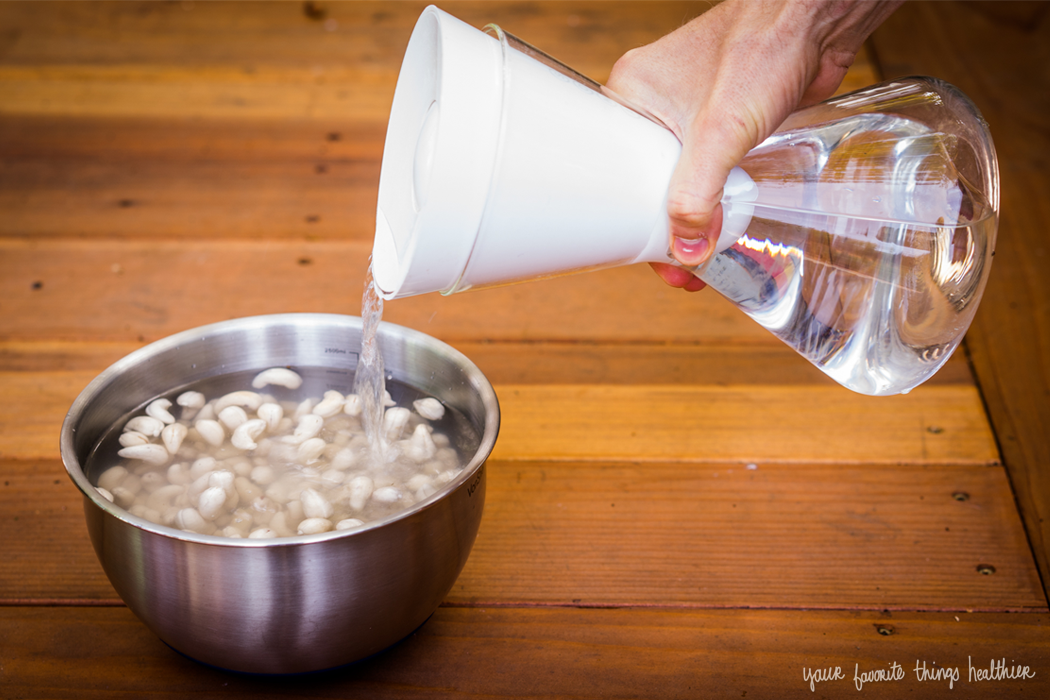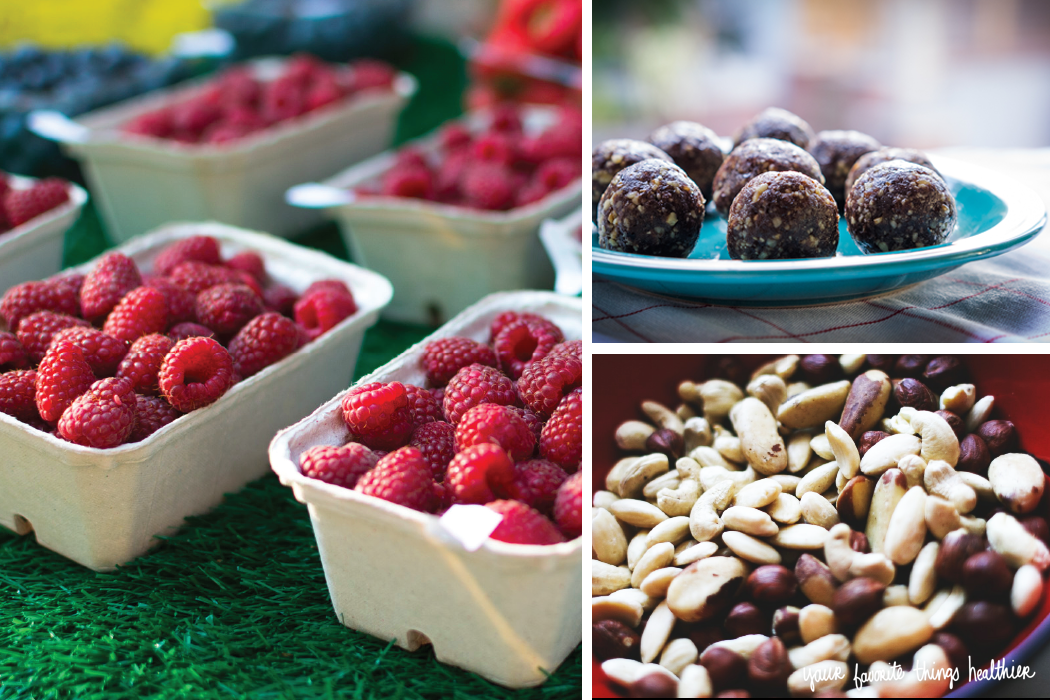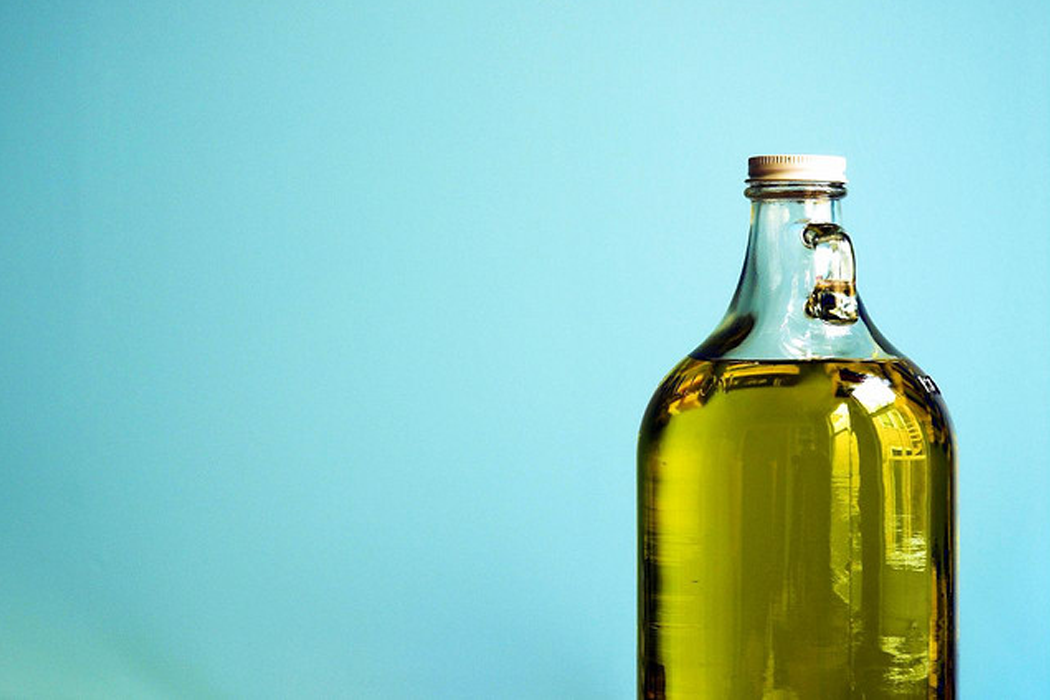As part of a healthful diet, Michelle and I have increased the amount of healthy fats we eat. As part of this effort, we often hit the bulk bins at our local market for raw almonds, cashews, pecans, pine nuts, and walnuts. But we noticed that some of these nuts gave us an upset stomach and we always wondered why. After hearing from more than a few friends that soaking or sprouting them is key, we did a bit of research and even starting soaking our own almonds and cashews. Stomach aches are gone. Once we started soaking them, no more problems. In this post, I’ll uncover why you may have an upset stomach after eating nuts and what you can do about it.
Which Nuts Should I Buy?
The healthiest nuts are raw organic nuts. Avoid any roasted or otherwise cooked or heated nuts, as the high temperatures used in roasting process can change (oxidize) the healthy oils the nuts contain. Raw organic nuts can be more expensive, but we’re big fans of only buying raw nuts, and they really keep us feeling our best.
Why Should I Soak or Sprout Nuts?
The hulls of nuts contain phytic acid that can hamper digestion of nuts. A few methods such as cooking, soaking in an acidic solution or sprouting can reduce the amount of phytic acid and help you digest nuts better. Phytic acid also binds with zinc and iron during digestion, so if you’re already low in these minerals, and especially if you’re a vegetarian, you’ll really want to sprout your nuts before eating them to make sure the nuts you eat aren’t robbing your body of these important minerals. Brazil nuts, sesame seeds and almonds are among the nuts highest in phytic acid.
Nuts can also be high in enzyme inhibitors that can slow and otherwise negatively affect digestion. Sprouting also reduces the amount of this enzyme inhibition. This means you’ll no longer have that stomach ache that nuts can give you.
How to Soak ‘Em
Soaking your raw nuts couldn’t be much easier. It’s basically just nuts, water and a bit of salt to reduce the amount of enzyme inhibitors.
We’ve see lots of suggestions for how much salt or water to add, but we tend to be a bit more casual about all of it. Here’s our “recipe”. In a glass or stainless bowl, add:
- 3-5 cups of raw, unroasted nuts
- 1-2 tsp salt
- water to cover nuts by one inch
Nuts shouldn’t float, so if one or two does, toss it, as it could be rotten.
Leave them for at least 6 hours. We always put them on to soak overnight. When they’re done, you’ve got more options.
Dehydration or Drying:
Be sure not to let the wet nuts sit around for too long or they can start to go bad quickly. The best option, if you’re not going to eat them right away, is to dehydrate them. An added benefit of dehydration, is that as the nuts dry out, they become crunchy and delicious like never before!
To dehydrate:
- Set your dehydrator to 105 F, or your oven to its lowest setting, usually 170 F
- Dehydrate for up to 20 hours. Cashews take a bit longer than almonds. For us, 170 F is a bit too warm for nuts, so if you’re using an oven, you might want to leave the door cracked just a bit and monitor their progress every couple of hours.
- Give them a crunch test to determine when they’re done. Too little time dehydrating/drying and the nuts won’t have a long shelf life. Be sure they’re really dry before storing them.
If it’s a warm day, we’ve had success using cookie sheets, drying three or four trays of almonds using the sun. Again, it’s really important that the nuts not stay wet for long periods, else they can go bad or turn moldy.
They’re Delicious!
Once you’ve got a batch of dehydrated or dried nuts, you’ll find yourself eating a lot more of them, which can be a great way to get a bit more healthy fat and protein. Just make sure you really chew them, since bigger nut pieces can be tough for your body to digest.
“Soaking raw nuts and seeds increases the nutritional content of Vitamins such as Vitamin A, C and, in particular B Vitamins. Soaking nuts and seeds in warm salted water activates the beneficial enzymes that then neutralizes the enzyme inhibitors making them more digestible and easily utilised.”*
What about Sprouting?
If you want to sprout nuts (only works with whole nuts), you need an additional step. After the soaking stage, rinse, then dry them and cover with cheesecloth. Put the nuts in a warm, dark place and let them sprout for one to three days, rinsing twice per day. Just be sure to remember to rinse them, or they can go rancid. And refrigerate them as soon as you’re done sprouting. They should last a week in the fridge.
Wrap it Up
The great benefits of soaking or sprouting your raw nuts are too great to ignore. Start doing it and increasing the amount of these wonderful healthy snacks you eat each day.
*References:
http://healthyeating.sfgate.com/health-benefits-nuts-raw-vs-roasted-3920.html
http://healthyblenderrecipes.com/hints_tips/soaking_nuts_seeds_grains
http://en.wikipedia.org/wiki/Phytic_acid
http://yumuniverse.com/soaking-and-dehydrating-nuts-and-seeds
http://healthyeating.sfgate.com/benefits-sprouted-nuts-10273.html





